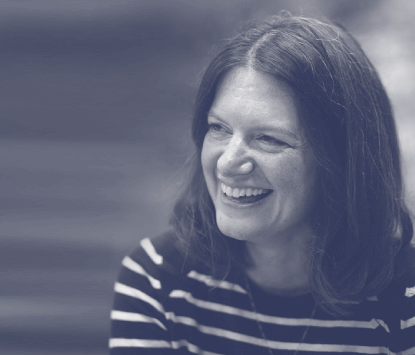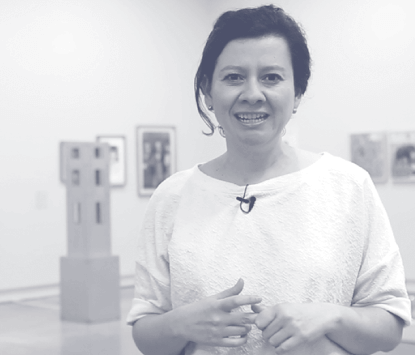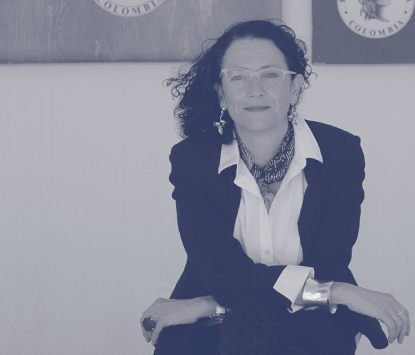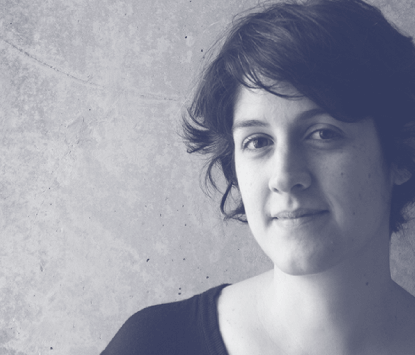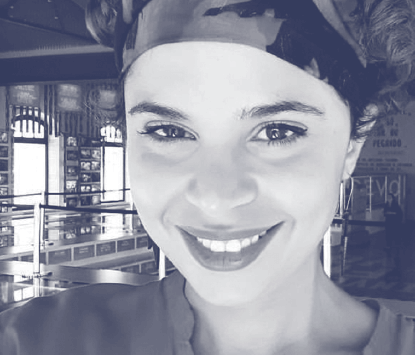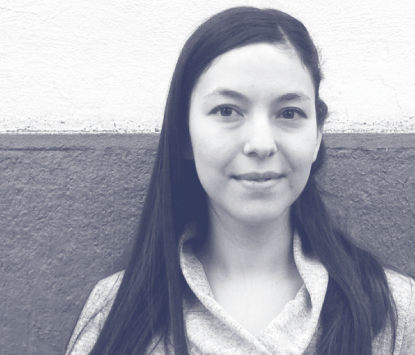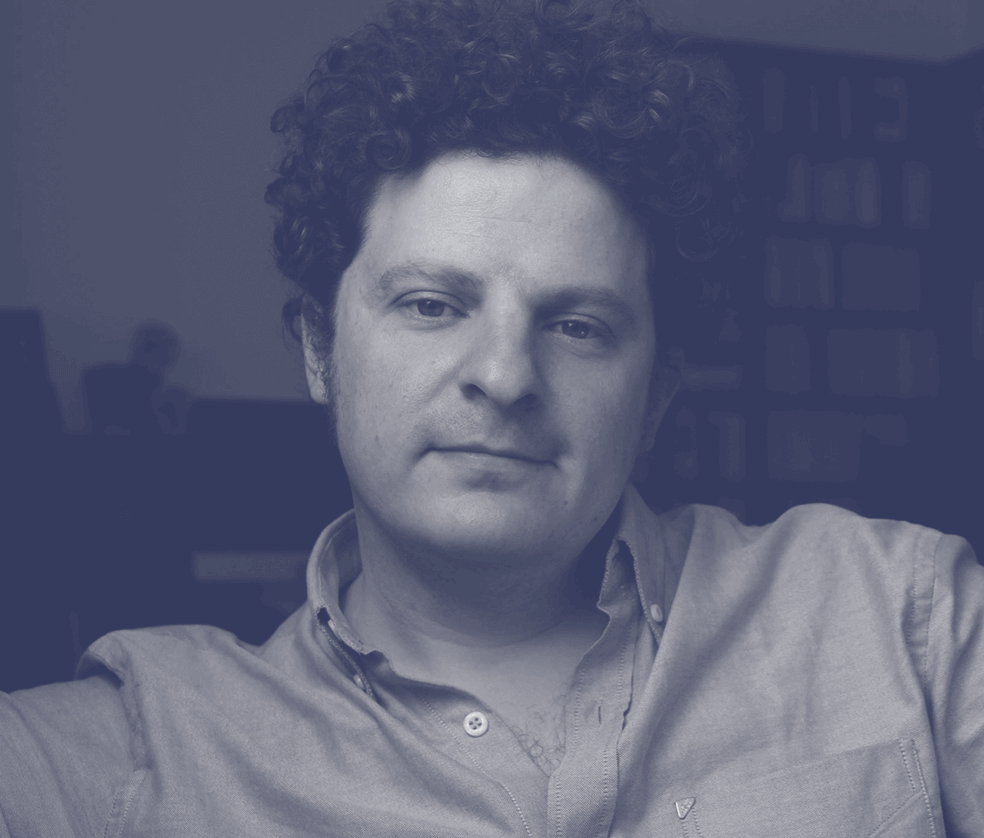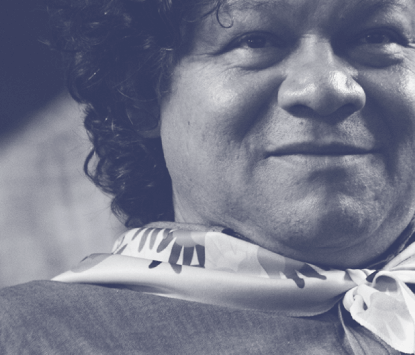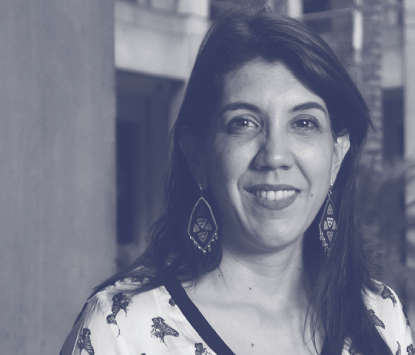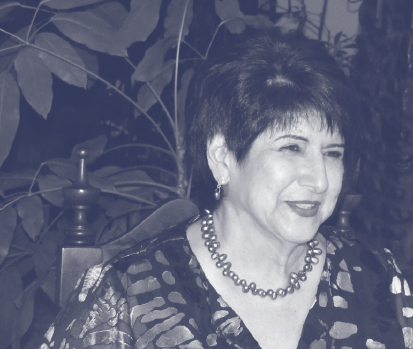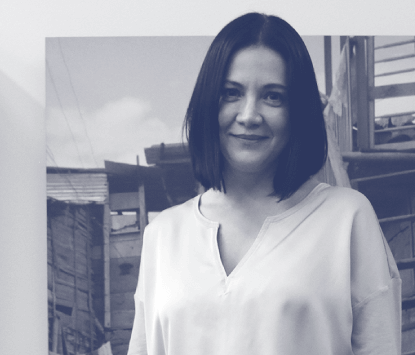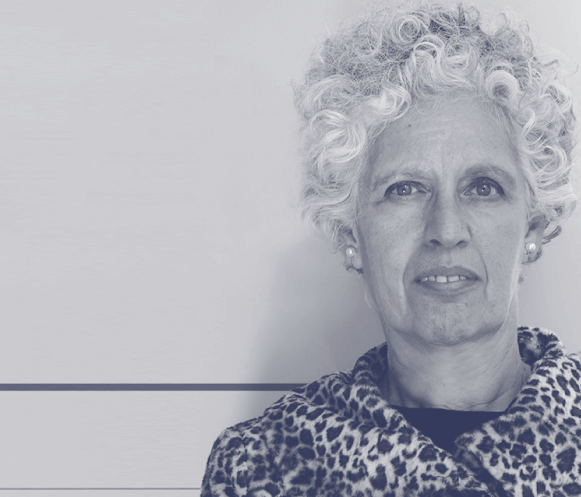 8:00 - 17:00
8:00 - 17:00 Orquideorama
Orquideorama
Registration
 9:00 - 9:45
9:00 - 9:45 Orquideorama
Orquideorama Conference
Conference
Medellín, An Urban Palimpsest
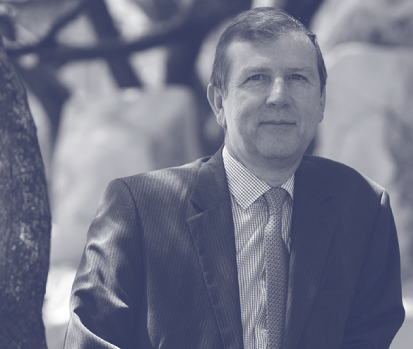 The story of cities, like medieval documents, are constantly rewritten. In recent years, the city of Medellín has been transformed and reconfigured so that many places of fear and pain have become places for freedom of expression and creativity. Gain insight on how the
The story of cities, like medieval documents, are constantly rewritten. In recent years, the city of Medellín has been transformed and reconfigured so that many places of fear and pain have become places for freedom of expression and creativity. Gain insight on how the
narrative of Medellín has evolved over time yet still retains traces of its origin.
 9:45 - 11:00
9:45 - 11:00 Orquideorama
Orquideorama Conversation
Conversation
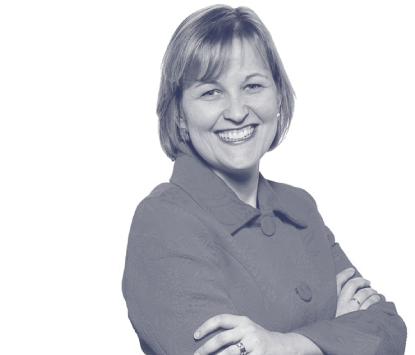
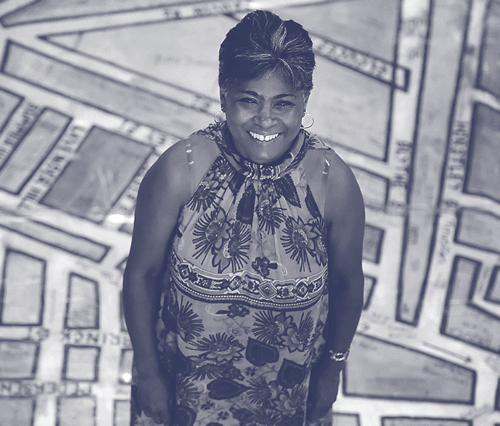
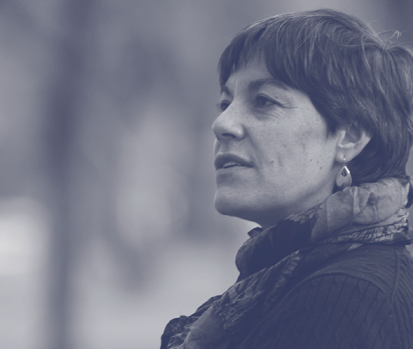
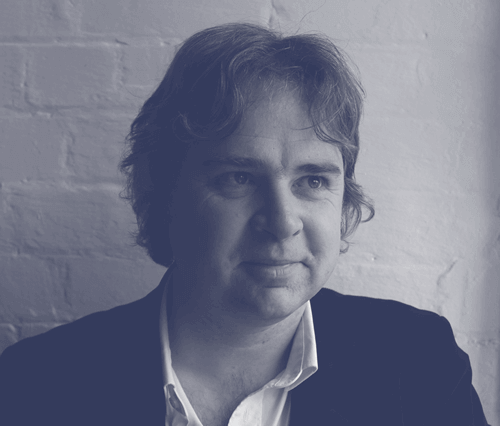
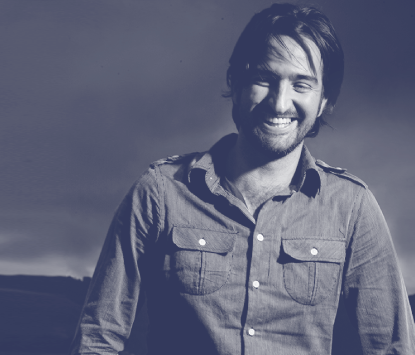
Museums often confront complex, controversial, and/or sensitive issues in order to foster greater social equity and a more just world. What are examples of courage? How do you secure support from key stakeholders to take risks and how do you measure success and learn from mistakes? Our panelists will share examples of risk-taking as well as offer advice on how to achieve mutually agreed upon goals for all stakeholders.
 11:00 - 11:30
11:00 - 11:30 Orquideorama
Orquideorama
Coffee break
The TyPA Foundation invites you to have coffee with graduates from the TyPA Laboratory of Museum Management. This is a great opportunity to learn more about participating in the 2018 edition of this unique professional training program.
 11:30 - 13:00
11:30 - 13:00 Orquideorama
Orquideorama  Experiences
Experiences
On Stage
Led by Madelka Fiesco (Papalote - Museo del Niño, México) and Germán Paley (Museo de Arte Moderno de Buenos Aires, Argentina).
+ Más información
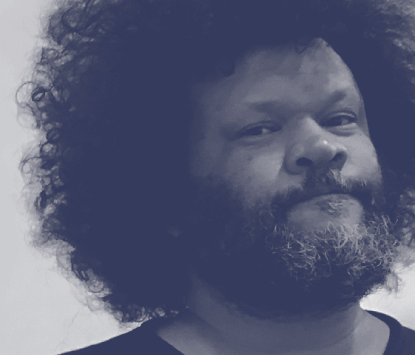
On Air: We Hack the Museums
Learn how HABEMUS, a public radio program about museums, engaged local bands to compose music based on the 95 Theses of Guillermo Solana (artistic director of the Museo Thyssen-Bornemisza) to attract greater interest from artists and non-museum visitors about museums.
How do we (Re) create a Contemporary Art Center?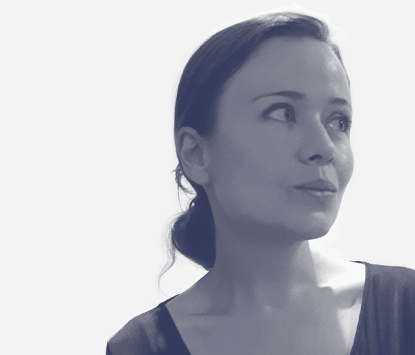
Cultural centers are often times collective intellectual enterprises informed by staff and communities through traditional processes. This case study explores how we can reflect on institutional memory to inspire greater risk–taking and innovation to create them anew.
Art Detectives at Pérez Art Museum Miami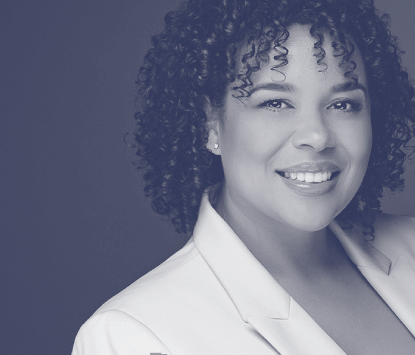
Art Detectives is an innovative arts-based learning experience, that brings together South Florida law enforcement and youth from under-served communities, sparking creative thinking and cross-community dialogue around one of our country’s most divisive issues: police interactions with young people of color.
Pedagogies of Contingency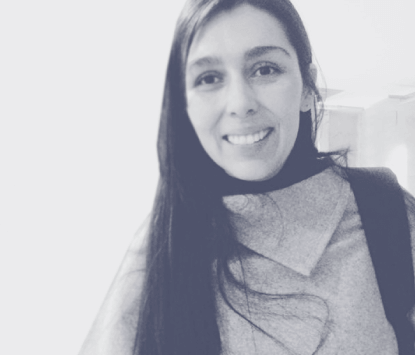
Gain insight on a model that can be used to identify new urgencies in the field of pedagogy in art museums that also challenges traditional thinking on museum practice.
Recognition and Cultural Preservation in the Colombian Conflict
Over the past two decades, the Embera Katío people of the Alto Sinú have been impacted by the presence of armed militia, resulting in countless forced displacements and the accelerated disruption of ancestral customs, traditions and knowledge. This case study examines the question: What is your responsibility to the displaced cultures in your community?
Museums and Social Educators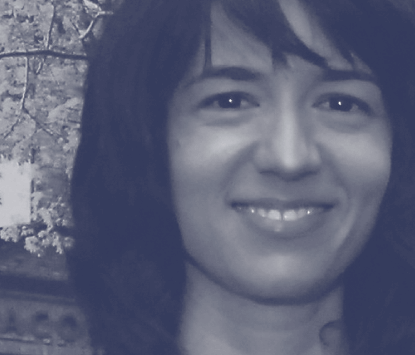
For the part thirteen years the Pinacoteca de Sao Paulo has offered a course for social educators who work with people in situations of social vulnerability. Explore the program’s profound impact on participants and their practices that has been revealed through evaluation.
ABC Papalote Educational Program
Explore ABC Papalote, an educational program that seeks to inspire teachers to rethink their educational practice and advance new ways of teaching and learning in the classroom through the use of different museum tools and resources.
Tell Me, How Do You Envision Your Science Center?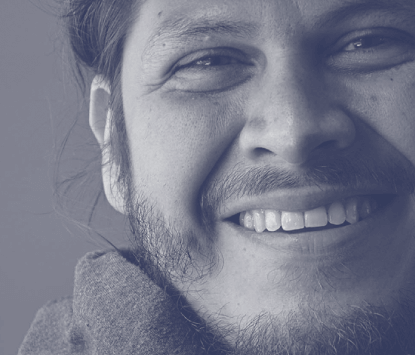
Explore how Colciencias engages its community in the creation and development of Science Centers in Colombia to best address community needs and concerns informed by its "Guide for the Formulation of Projects," a resource that helps shape conversations about science with the community.
Empathy and Dissent in Border Cantos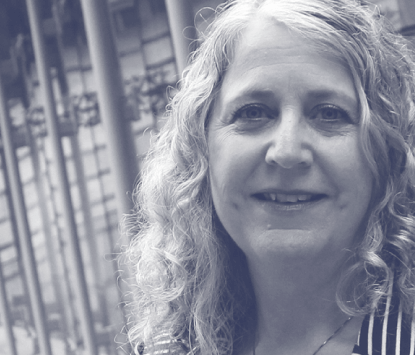
“Border Cantos” is an exhibition that tells compelling stories of the Mexican-Americans borderlands, and the people who pass through them. Can a museum in America's conservative heartland in Bentonville, Arkansas, effectively invite people into this difficult conversation? Find out how the exhibition team and a group of Latino/Hispanic activist/advisors elicited responses from the community about this exhibition.
 11:30 - 13:00
11:30 - 13:00 Auditorio Explora 1 y 2
Auditorio Explora 1 y 2  Experiences
Experiences
Conducted in a trial-like session format, hear opposing points of view on whether the co-creation of museum projects, exhibitions and programs with the public is a genuine form of the democratization of the museum.
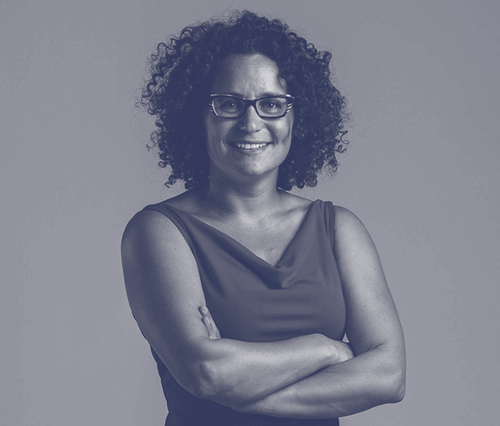
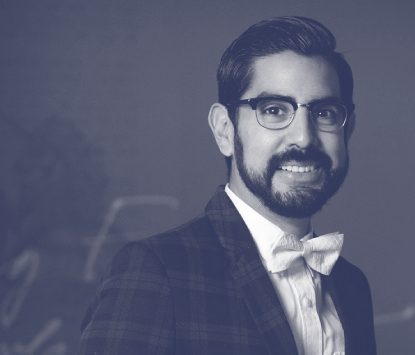

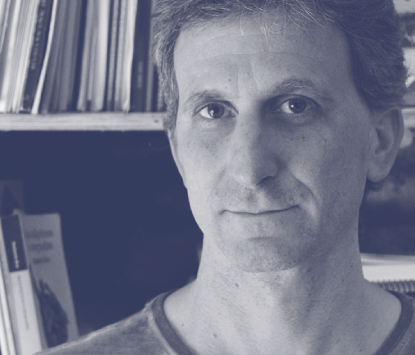
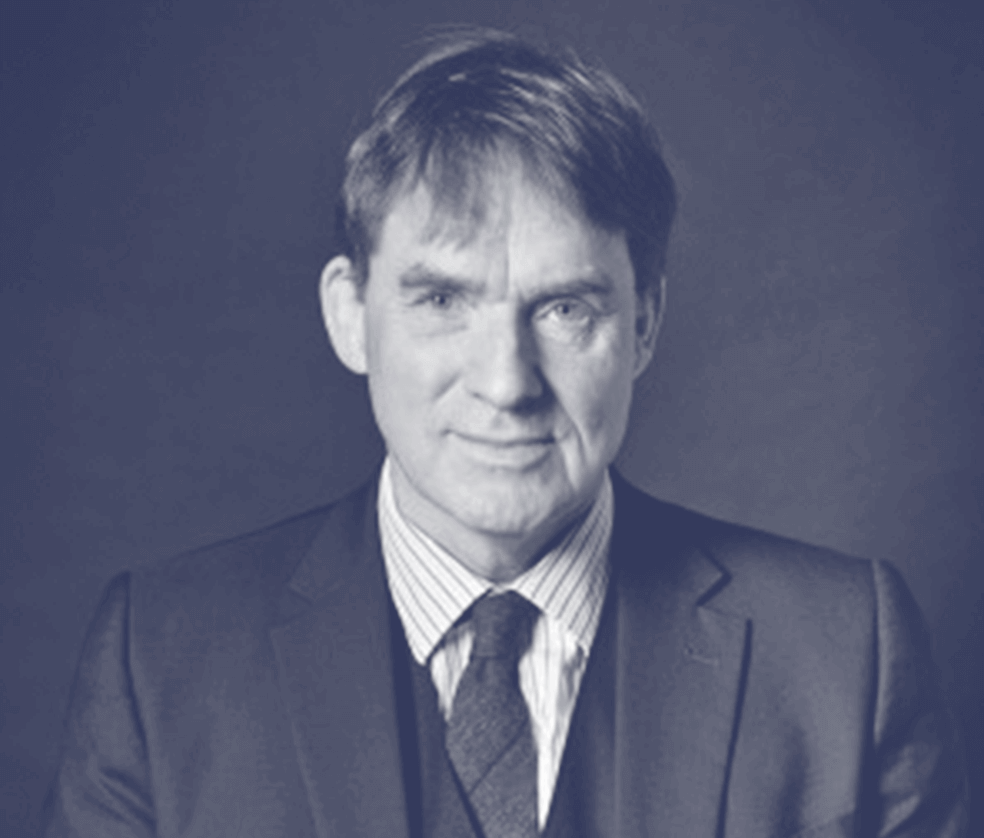
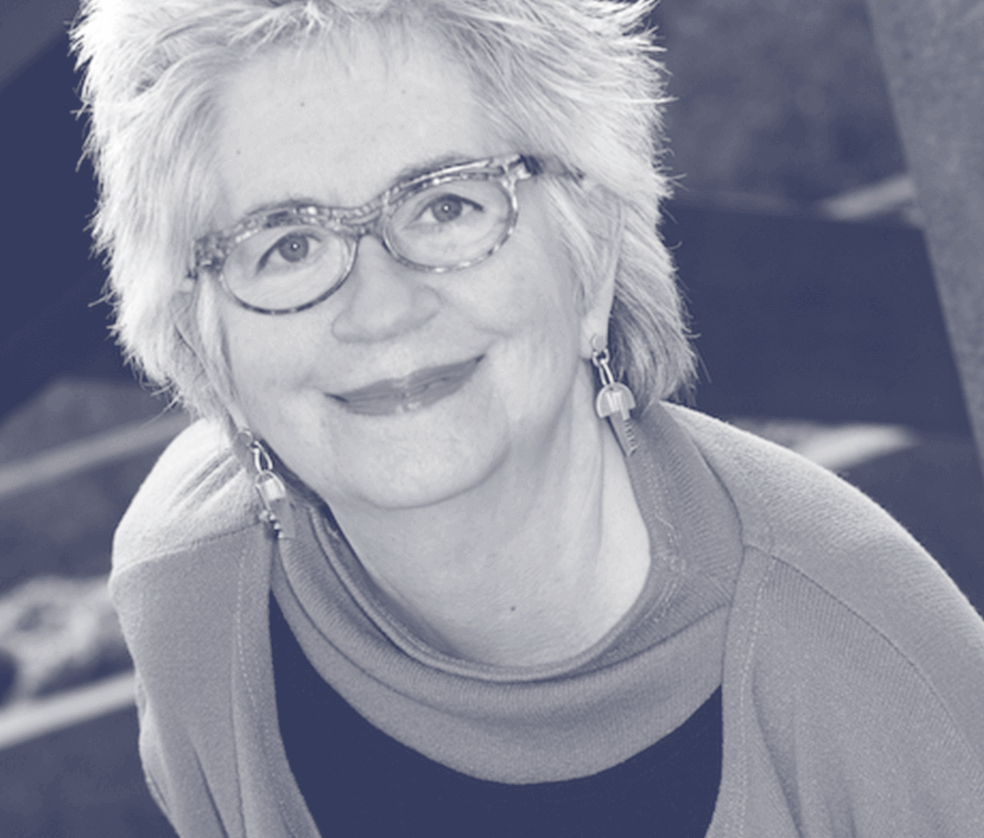
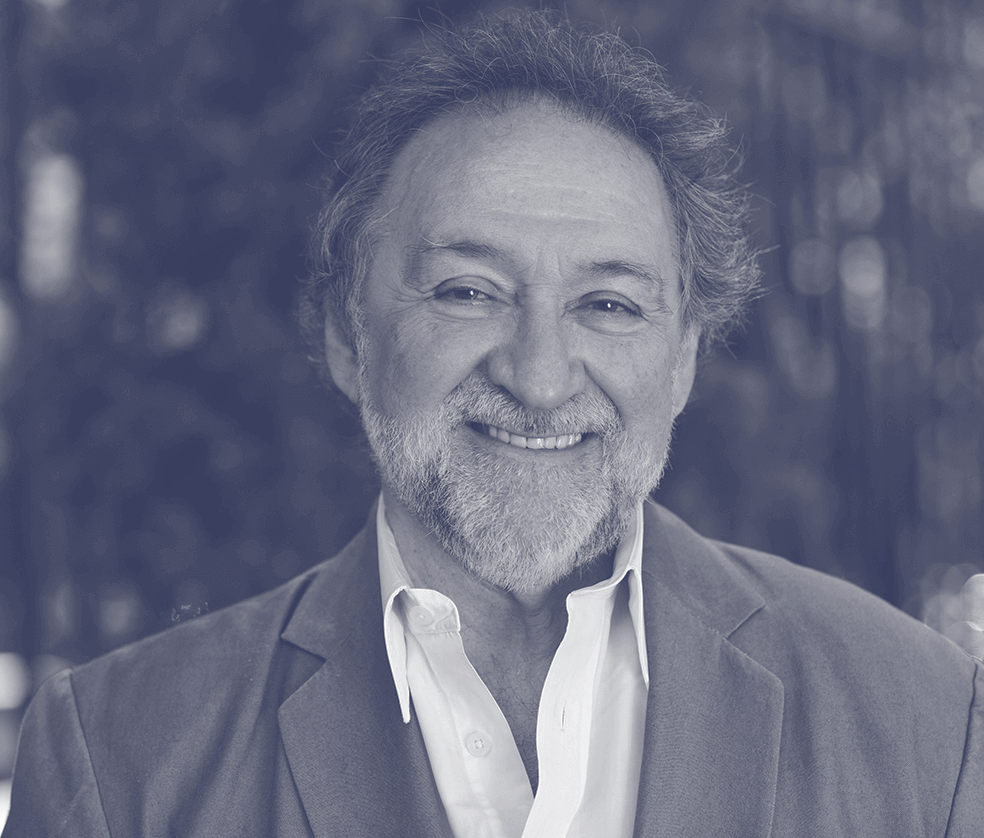
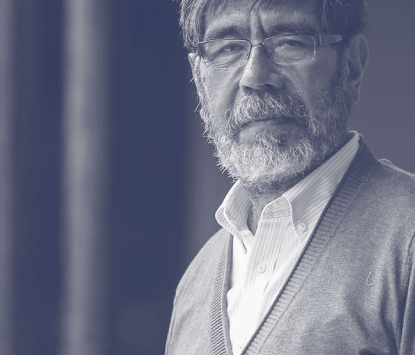
 13:00 - 14:30
13:00 - 14:30 Orquideorama
Orquideorama
Lunch
 13:20 - 14:10
13:20 - 14:10 Orquideorama
Orquideorama
Luncheon Conversations
Select from Today’s Menu of topics a conversation you would like to join.
1.
Strategic Managers: Make Things Work
Carol Rogers (National Museums of Liverpool, UK) & Silvia Singer (MIDE, Mexico)
Exchange ideas on how to run a museum to ensure its sustainability, effectively manage resources, establish ideal strategic alliances, and explore alternative financial models.
2.
Museums within Universities
Andrea Bandelli (Science Gallery, Ireland) & Rosario García (Fundación Proa, Argentina)
How do museums operate within a university setting to share staff, conduct joint research projects and production, and work collaboratively? What are the challenges and opportunities?
3.
Museums Professionals Formal and Informal Networks
Maximiliano Maito (Museo de Arte Contemporáneo de Buenos Aires, Argentina) & Ana Amalia Rossiter (RIMC- Red informal de museos y centros culturales de Belo Horizonte, Brasil)
A conversation to share experiences about informal and formal professional networks and review their life cycle from creation to recomposition.
4.
Teens in Museums
Ekaterina Vladimirtseva (Garage Museum of Art, Rusia) & Karima Grant (Imagination Afrika, Senegal)
A conversation to reexamine stereotypes on working with teens in museums.
5.
Publishing in the Museum: Writing about What We Do
Elaine Gurian (The Museum Group, US) & Analia Bernardi (Museo Ferrowhite, Argentina)
Blogs, tweets, essays, articles are some of the existing tools used to record and write about what we do. But for what purpose do we write?
6.
Museums in Rural and Non-Urban Regions
Rosseline Tavares (Museo Vivo, Brasil) & Esmeralda Ortiz Cuero (Museo Mulaló, Colombia)
For what and to whom do museums serve in rural or non-urban regions? What can they teach museums located in other regions?
7.
Know Your Audience
Paula Villani (Museo Gallardo, Argentina) & Sigrid Falla (Maloka, Colombia)
Share current experiences in visitor studies. What types of resources do we use to better know and understand specific communities?
8.
Scientific Inquiry, Inclusive Museums
Diego Golombek (divulgador científico, Argentina) & Matteo Merzagora (TRACES - Espace des Sciences Pierre Gilles de Gennes, Francia)
What can museums learn from scientific inquiry and practices to promote more inclusive museums?
 13:30 - 14:10
13:30 - 14:10 Aud. Planetario
Aud. Planetario
Distinguished museum professional and author, Teresa Morales shares her profound insights on the museum field, concerns, and future challenges. 
Teresa Morales (México) is director of the Network of Communitarian Museums of America and has helped create 24 communitarian museums in Oaxaca, Mexico. She is author of the publication El Museo Comunitario: un espacio para el ejercicio del podercomunal (The Communitarian Museum: A Place to Exercise Communal Power) (2009).
 14:30 - 18:00
14:30 - 18:00
Dialogue sessions
Professionals present their experiences and facilitate candid conversations on specific issues.
+ Más información
 14:30 - 18:00
14:30 - 18:00 Aud. Planetario 2
Aud. Planetario 2
How and why are museums extending their experience beyond their physical walls? Gain insight on projects and strategies that museums have developed to step beyond their walls and into public spaces to include other communities, streets, public squares and beyond. Learn how this experience has transformed organizational practice and inspired new ways to engage audiences, re-envision the museum’s physical space and create alternative spaces and new responsibilities for museums as public spaces.
 14:30 - 18:00
14:30 - 18:00 Aud. Explora 1
Aud. Explora 1
Museums with small budgets, staff, and collections can make a profound impact, emphasizing depth over scale. Explore examples of small museums whose influence has grown through specialization in knowledge, customized experience, and the innovative use of limited resources. This session will be applicable to museums of all sizes that are exploring ways to design customized, personal audience experiences.
 14:30 - 18:00
14:30 - 18:00 Teatro Explora
Teatro Explora
Since the 1990’s, Medellin has advanced participative cultural politics to rethink itself as a vibrant, thriving cultural metropolis. Collaboration between the public sector, academia, private sector and communities has served as a model not just for other cities in Colombia but for other countries as well. The dynamic of the city in times of crisis and violence offers great insight on resilience. Learn from practitioners the achievements and difficulties in this evolving process.
 14:30 - 18:00
14:30 - 18:00 Aud. Explora 2
Aud. Explora 2
How do we best document, preserve and interpret memories of painful political histories and events? Can we connect memory with the future to live in the present with hope? Learn from museums that have given voice to the unspeakable and created a framework to build social cohesion and greater awareness of human rights in the aftermath of tragedy and adversity.
 14:30 - 18:00
14:30 - 18:00
Workshops
Practical, hands-on sessions offer participants an opportunity to experiment and explore new approaches.
+ Más información
 14:30 - 18:00
14:30 - 18:00 Biblioteca Planetario
Biblioteca Planetario
Looking inside: The Organizational Dimension of the Museum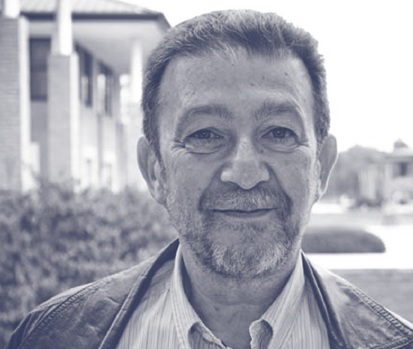
If you want to initiate change, innovate and improve your team building skills, this workshop will show you how to start, as well as provide an understanding of the multiple dimensions of change and the evidence that confirms transformation is happening.
 14:30 - 18:00
14:30 - 18:00 Taller Central Exploratorio
Taller Central Exploratorio
Hack the Maker Space
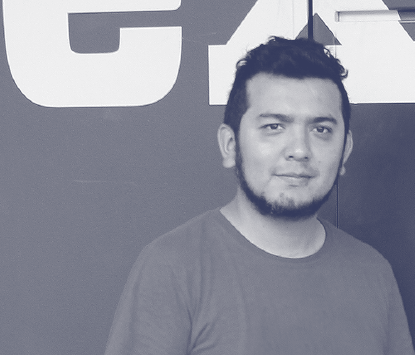
The proliferation of “maker” spaces, have created many community-based workspaces for people to gather to create, invent, learn and problem solve. Understand how the principles that inform these highly collaborative environments might also be applied to identifying inventive solutions to community problems and issues.
 14:30 - 18:00
14:30 - 18:00 Laboratorio de Ideación Exploratorio
Laboratorio de Ideación Exploratorio
Can Civic Design and Art Initiate Reconciliation and Peace?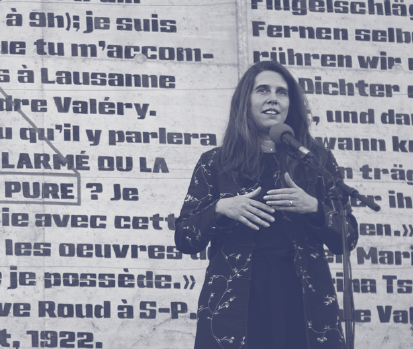
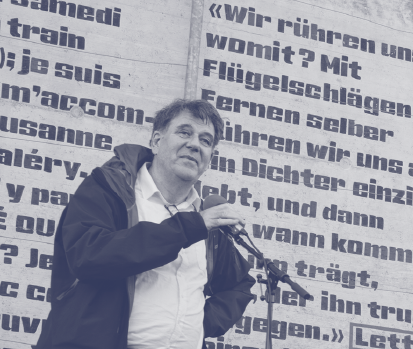
What roles can a museum play to develop alternatives in a world in crisis? How do we design a site of memory where fragility becomes the potential? How do we provide perspectives and context for wounded places and work effectively with sensitive aspects of a site? Gain greater insight on context- and community-based design and how it might be applied to sites of memory, museums and public places.
 14:30 - 18:00
14:30 - 18:00 Sala Experimental 2 Exploratorio
Sala Experimental 2 Exploratorio
Nothing but the Truth: Effectively Communicating the Role of Museums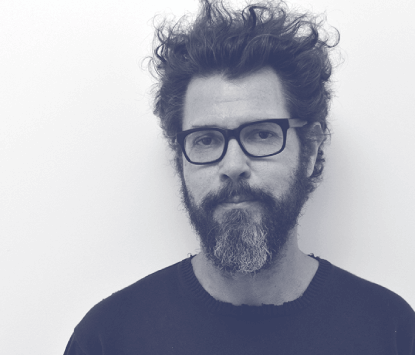
Luis Marcelo Mendes (MAC, Panamá)
Strategic brand management in museums goes beyond a logo, typography, or set of visual codes. What is the “ethos” of your institution? This discussion will focus on the concept of radical differentiation in messages to most effectively communicate the role of your museum.
 14:30 - 18:00
14:30 - 18:00 Sala Infantil
Sala Infantil
Rapid Prototyping for Exhibitions
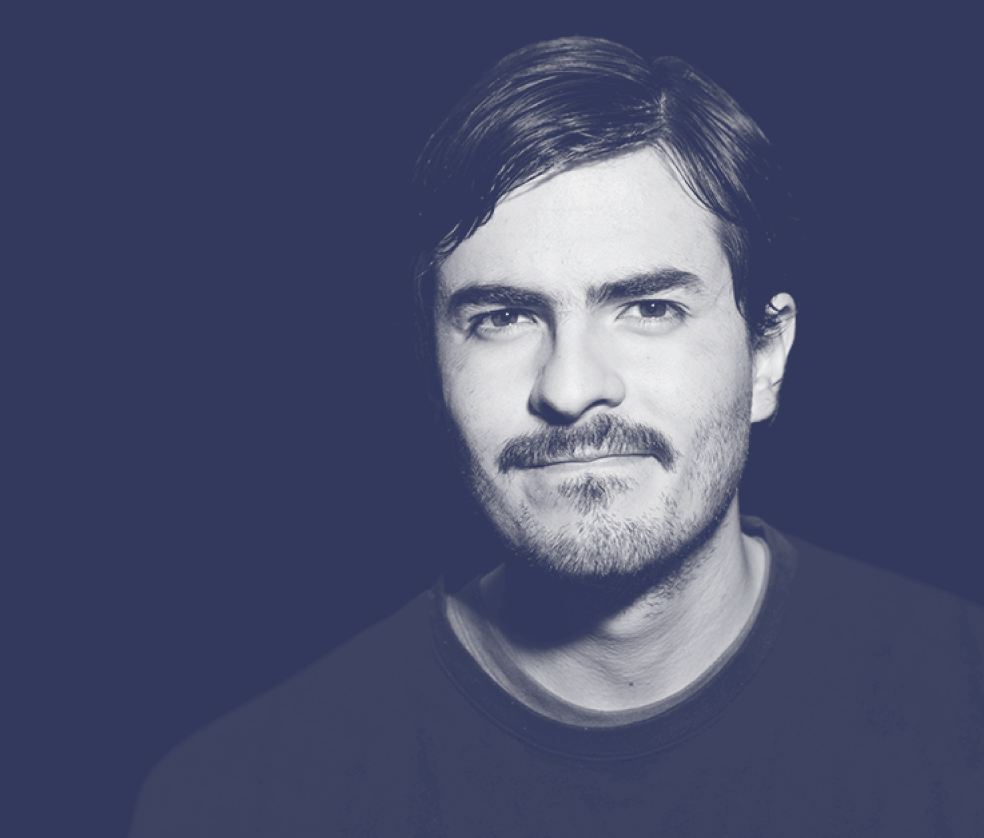

This workshop provides creative tools for designing and renovating museum exhibitions that deepen the visitor experience and that also save time and money.
 19:00 - 21:00
19:00 - 21:00 Parque de los Deseos
Parque de los Deseos
Concert
"Navigation by the Universe" Philharmonic Orchestra of Medellín
Enjoy an extraordinary journey through the universe through a special musical performance by the Philharmonic Orchestra of Medellin.
























